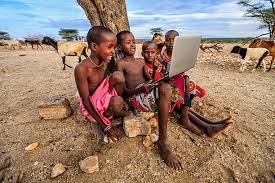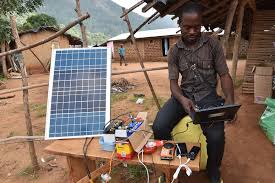Our Story
We strive to create a world where all people, without exception, can harness the power of the internet to prosper.
That means making data infrastructure as widely available in developing countries as power grids have become. We build affordable networks using TV white space and other radio technologies as well as fibre-optic lines. TV white space refers to a set of frequencies in the wireless spectrum previously used by terrestrial television. The gaps created by the switch to digital broadcasting freed up part of the spectrum and can now be used for broadband internet.
We connect homes and businesses using a proprietary network of towers and fibre lines. We also create public wifi hotspots in hundreds of communities where customers can log in with pay-as-you-go accounts. Furthermore, we create tailor-made digital products, IoT and cloud solutions, developed by an in-house software team working in conjunction with Microsoft. We employ several hundred people and have served more than 180,000 customers.
.
Context
With an Internet penetration rate of nearly 70%, Uganda has among the highest rates of Internet use in Sub-Saharan Africa. Uganda’s Internet usage rates rank among the highest in Africa with nearly 87.2 percent of the population having Internet access and 18.6 percent subscribed to broadband. In August 2013, Microsoft sought permission from the Communications Authority of Ugannda to test the viability of TV white space technology to bring last mile connectivity to the contries rural areas. Triple Radius conducted these trials in four rural areas, Triple Radius Limited, Adaptrum, and Ubiquiti Networks, along with support from the United States Agency for International Development (USAID) and OPIC. The trials entailed setting up solar-powered Internet kiosks or solar cafés to provide Internet access to locations with limited or no access to electricity
Be Part of Our Community
details
Design version 3
Code version 2





